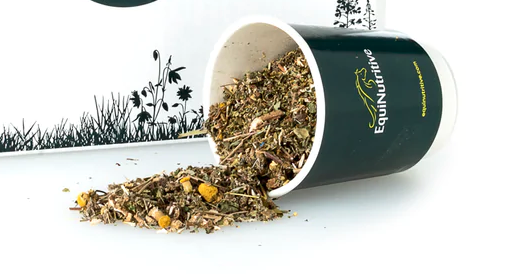
It is a frequent fallacy that because your horse is fed a balanced diet, it doesn’t require supplements. True, there are numerous high-quality, nutritionally balanced complete feeds on the market, such as nuts or mixtures. It is true only if you feed your horse the right amount of food for their needs. You also have to ensure that their other nourishment, such as forage, is in order. Various supplements are there for horses to provide different benefits. Even your horses would get rid of stress, and you must make them calm by providing calming supplements. In this post, you will learn about some of the different types of calming supplements for horses and other details regarding it:
Types of calming supplements for your horse
You can find three different types of calming supplements for horses, each different from the others. Understand the types well and decide which one is required for your horse.
- Nutrition-based horse calming supplements
Nutrient-based horse calming supplements, as the name implies, focus on supplying nutrients that support a healthy nervous system. This calming horse supplement can help if your horse has a nutritional deficiency or needs extra nutrients in its diet. Look for crucial elements like magnesium, thiamine, and theanine for nutrient-based horse calmers. Inositol and tryptophan are also included in some nutrient-based supplements. Talk to your veterinarian about these components and how they may affect your horse. It may take your horse up to six weeks to respond to these horse tranquillisers. If you compete in graded events, you must use nutrient-based supplements.
- Moody mare calming supplements
The heat cycle may impact your horse’s hormone function, resulting in moodiness and behavioural changes. Your mare’s digestive and reproductive tracts may be inflamed, making it difficult for them to remain calm, focused, and happy. Raspberry, cramp bark, and vitex agnus castus, are common ingredients in relaxing supplements for grumpy mares. Before utilising these soothing supplements, speak with your veterinarian about your mare’s health. Your veterinarian can provide pain-relieving advice to help your mare through her heat cycle.
- Herbal horse calming supplements
Horse calmers in this category are herbal-based and can aid in maintaining a healthy nervous system. Valerian, chamomile, hops, vervain, and passion flower are all common herbal constituents in herbal horse calmers. On average, herbal horse calmers can take up to six weeks to take action. Keep in mind that herbal horse tranquillisers are not permitted in graded competitions.
Do they work or not?
Yes, horse calming supplements make agitated, nervous, or tense horses feel more at ease, confident, and focused. Stress, anxiety, and uneasiness can be a part of your horse’s personality, just like they are in humans and other animals. Some horses have a genetic make-up that makes them more sensitive and apprehensive, or they don’t react well to change. The good news is that you may choose from various horse calming supplements on the market. Magnesium, thiamine, theanine, valerian, chamomile, and vervain are some substances used in horse tranquillisers. These components strengthen your horse’s nervous system, resulting in a calmer and happier animal.
Does your horse need this supplement?
Before buying any calming supplements for horses, make sure they require them or not. Ask the given questions to yourself and take the right decision:
What are you feeding your horse?
What kind of grain do you feed your horse? It is critical to scrutinise the substances in your horse’s feed. Remember that grains can be heavy in sugar and carbohydrates, which might make your horse too eager and excited.
Whether your horse gets sufficient exercise or not?
Your horse must be able to move around, run, and jump. Your horse should be pushing for up to 20 hours per day. Remember that exercise is essential for your horse’s stress relief, energy burn-off, and overall comfort.
Does your horse have any nutritional deficiencies?
Your horse may suffer from nutritional inadequacies, contributing to their agitated demeanour. Muscle tightness and anxious behavior are signs of magnesium insufficiency.
Final words:
After asking the questions to yourself and your veterinarian, decide to buy the calming supplement for your horse and then find a good supplier. Don’t keep your horses so stressed and anxious, which may reduce their potentiality and life spans.
